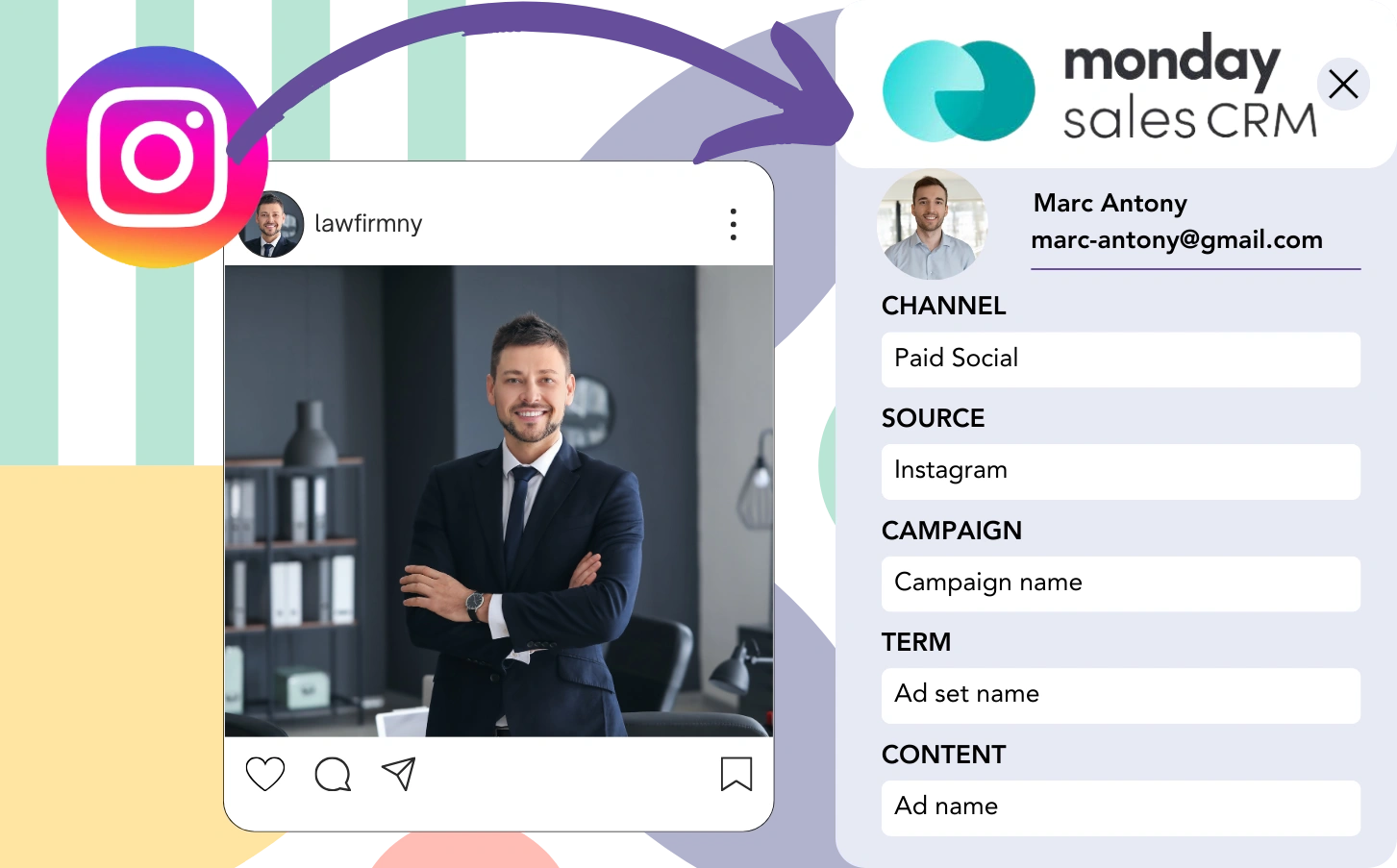You collect leads from Instagram and transmit them to monday CRM, but there’s no way to associate each lead with a particular ad. When they become customers, linking them to the initial Instagram ad is out of reach.
This lack of tracking makes it hard to measure Instagram ad performance, leaving you uncertain of which ads contribute to leads and customers. As a result, you may continue ad spending without insight into their success.
Luckily, there’s a convenient method to trace every lead back to the specific Instagram campaign, ad set, and ad that generated it.
Let’s handle each part step by step!
How to Track Instagram Ads in monday CRM
Step 1: Add Leadsources in the head tag of your website
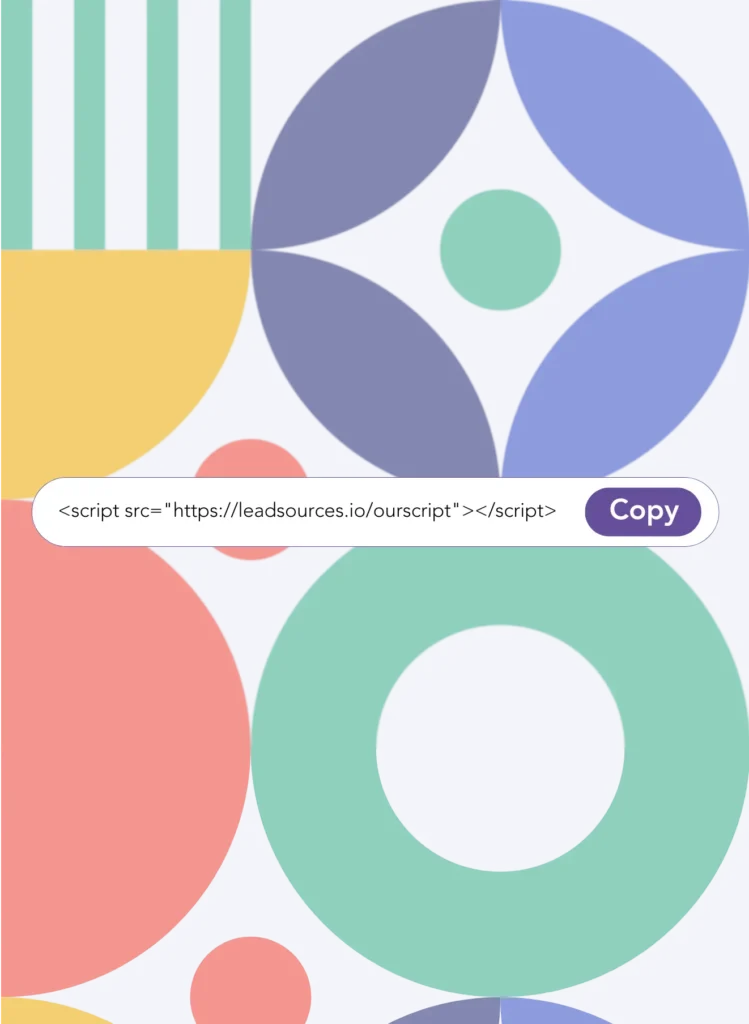
Leadsources is a tool that helps track where leads are coming from easily. Once installed on your site, it captures up to 7 source data points per lead.
➡️ Sign up to Leadsources.io for free
➡️ Add the Leadsources tracking code to your site
Step 2: Add the UTM parameters to your Instagram ads
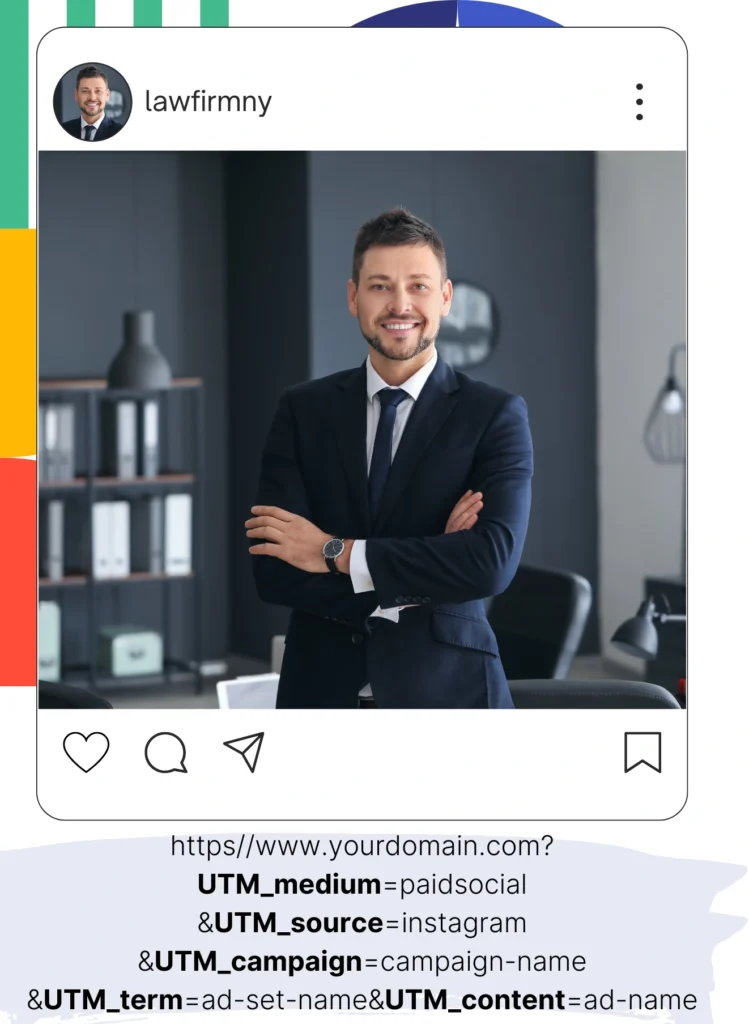
Add UTM parameters to the ad URL to capture Instagram ad details—campaign, ad set, and ad. Here’s an example:
UTM_medium=paidsocialUTM_source=instagramUTM_campaign=campaign-nameUTM_term=ad-set-nameUTM_content=ad-name
The final URL should be formatted like this:
https://www.yourdomain.com/?UTM_medium=paidsocial&UTM_source=instagram&UTM_campaign=campaign-name&UTM_term=ad-set-name&UTM_content=ad-nameImportant to note: Leadsources compiles all lead source information, even without the use of UTM parameters, ensuring a complete tracking for every lead.
Step 3: Add the hidden fields in your form
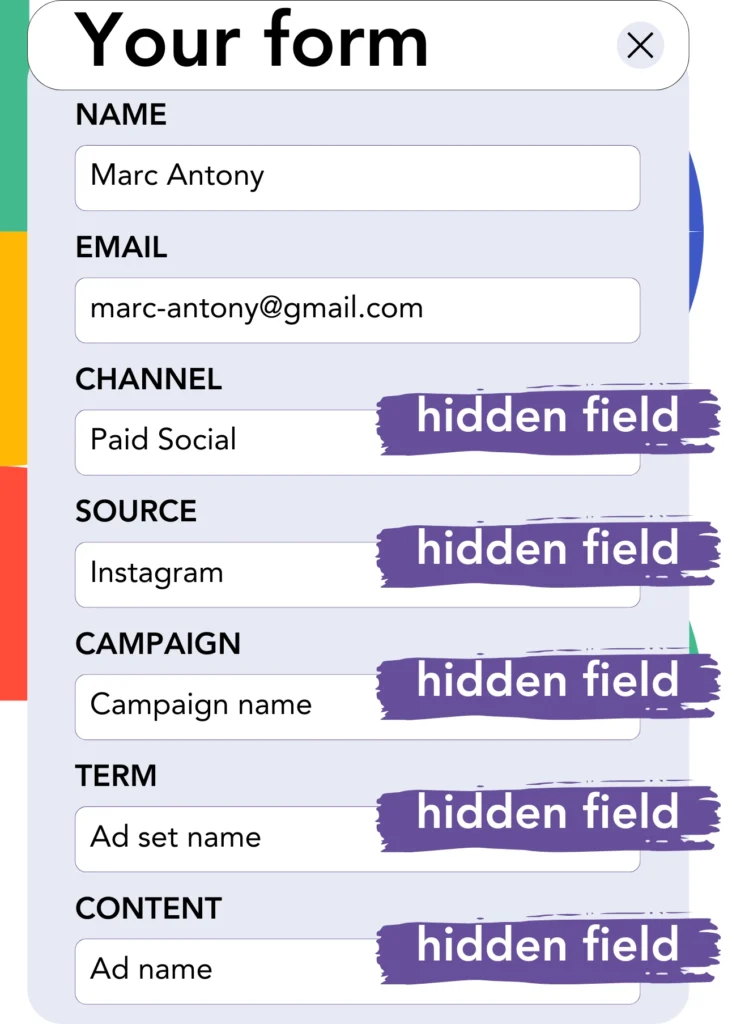
Hidden fields refer to inputs within a form that are not displayed to users, while still being able to store data sent with the form submission.
The lead source data is saved in hidden fields by Leadsources. Upon form submission, these fields are automatically populated with Instagram ads information.
Step 4: Capture the Instagram ads data in monday CRM
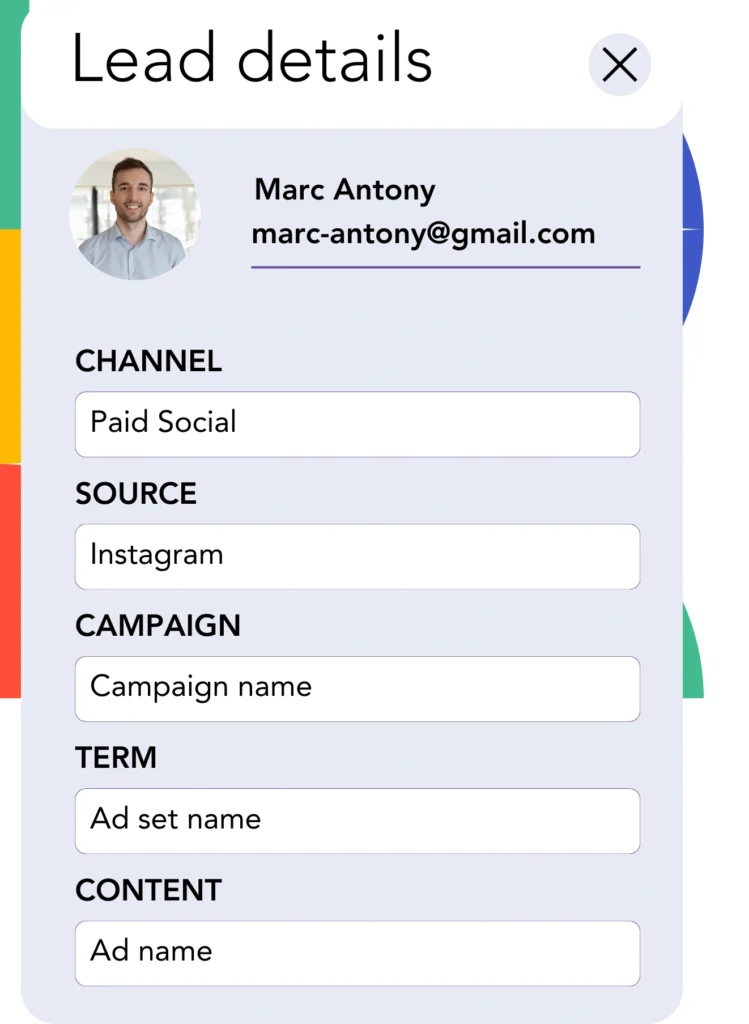
When users interact with your ads and visit your site, Leadsources fetches the Instagram campaign, ad set, ad data, and more.
This lead source data can be sent from your form builder to monday CRM. You can then track the source of your leads, sales and revenue directly on monday CRM.
This allows you to close the loop between your marketing efforts and your sales performance.
How does Leadsources work?
Each time a user lands on your site, Leadsources gathers Instagram ad data and places it in the hidden fields of your form. Upon submission, this data is sent to monday CRM, including the lead details you’ve captured (such as name and email).
Leadsources tracks every piece of lead source data for each individual lead:
| Lead source data | Fetched automatically |
| Channel | ✅ |
| Source | ✅ |
| Campaign | ✅ OR use UTM_campaign |
| Content | UTM_content parameter is required |
| Term | UTM_term parameter is required |
| Landing page | ✅ |
| Landing page subfolder | ✅ |
The table above reveals that in cases where UTM parameters are unfeasible—like organic sources including Google search or Instagram bio links—Leadsources manages to gather some lead source data:
- Channel
- Source
- Campaign
- Landing page
- Landing page subfolder
Unlike many tools, Leadsources tracks lead sources comprehensively across all marketing channels, whether they are organic or paid.
Performance reports: Lead, sales, and revenue by source
By assessing Instagram ads data in monday CRM, you can generate performance reports that highlight:
- Leads, sales, and revenue by channel
- Leads, sales, and revenue by source
- Leads, sales, and revenue by campaign (aka. Instagram campaign)
- Leads, sales, and revenue by term (aka. Instagram ad set)
- Leads, sales, and revenue by content (aka. Instagram ad)
This supports your strategy to adapt your Instagram budget based on the campaigns, ad sets, and ads that maximize leads, sales, and revenue.
Let’s illustrate some of the reports you can generate:
1. Lead source reports
Compose performance reports that record the leads generated from:
- Channel
- Source
- Campaign (aka. Instagram campaign)
- Term (aka. Instagram ad set)
- Content (aka. Instagram ad)
- Landing page
- Landing page subfolder
Example #1: Leads by channel
This report highlights the channel that produces the most significant number of leads.
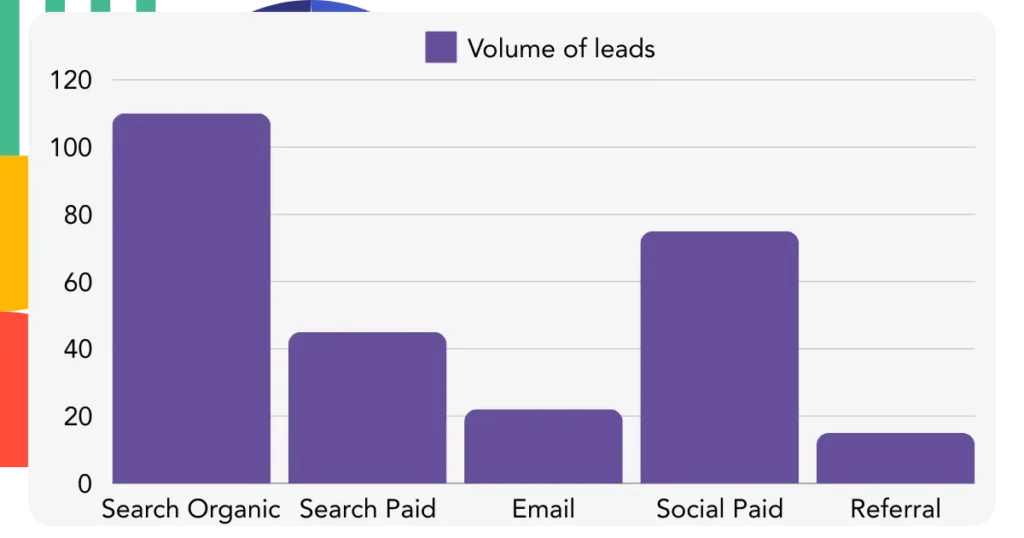
Example #2: Leads by Instagram campaign
Now you can focus on a particular lead source (e.g., Instagram) and examine the number of leads created by every Instagram campaign.
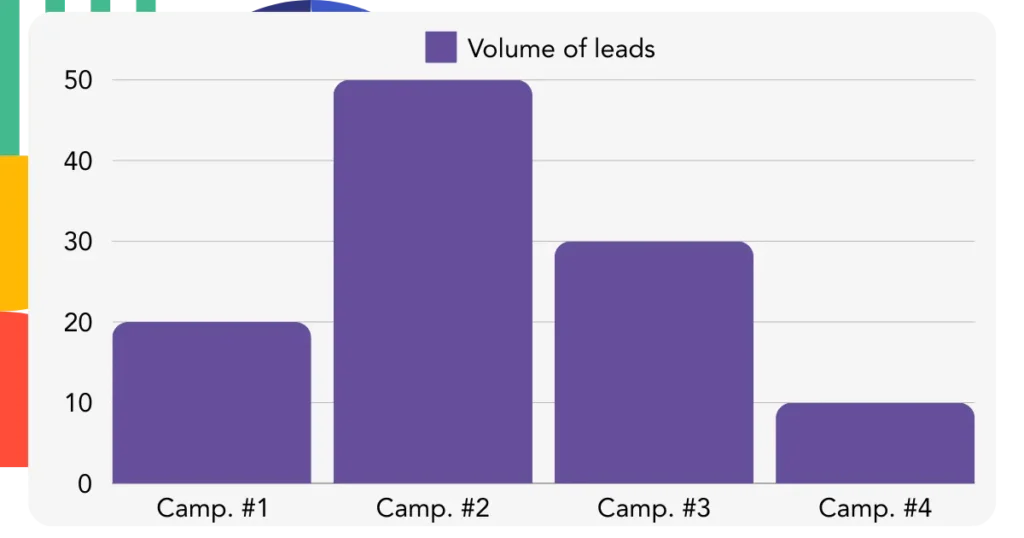
Example #3: Leads by Instagram ad
After discovering the Instagram campaign that delivers the most leads, you can examine which specific ad group or ad generates those results.
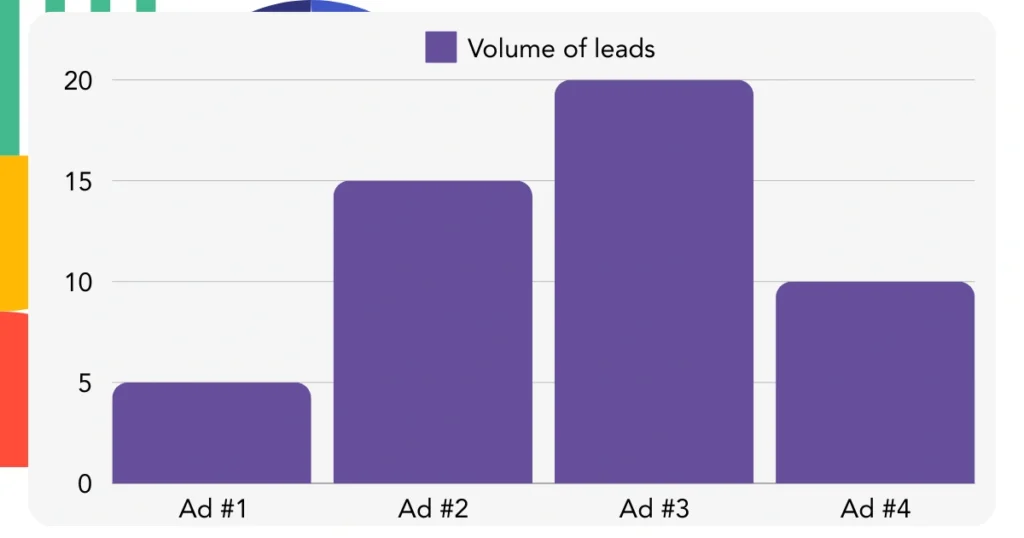
2. Sales and revenue source reports
Now that we know which Instagram campaign, ad set, and ad are responsible for our leads, we need to ascertain whether these leads convert into sales and revenue.
To achieve this, send your leads to monday CRM. This integration provides the ability to track sales and revenue produced by multiple channels, sources, Instagram campaigns, ad sets, ads, landing pages, and subfolders.
This information allows you to adjust your Instagram ad approach, prioritizing the channels, sources, campaigns, ad sets, and ads that drive the highest sales and revenue.
You can create a variety of sales and revenue reports, such as:
- Sales and revenue by channel
- Sales and revenue by source
- Sales and revenue by campaign
- Sales and revenue by term (e.g., Instagram ad set)
- Sales and revenue by content (e.g., Instagram ad)
- Sales and revenue by landing page
- Sales and revenue by landing page subfolder
Example Scenario:
| Channel | Search Paid | Social Paid |
|---|---|---|
| Leads | 50 | 75 |
| Sales | 5 | 6 |
| Average Order Value | $150 | $100 |
| Revenue | $750 | $600 |
Once the ads were live on Google and Instagram, the first “Leads by Channel” report illustrated that Social Paid ads (Instagram) generated more leads than Search Paid ads.
Upon reviewing sales and revenue data in monday CRM, you discovered that the Search Paid channel yielded more revenue while attracting fewer leads compared to the Social Paid channel. This caused you to shift your budget to support the Search Paid channel.
LeadSources tracks the source of each lead in monday CRM, whether they come from ads, organic search, social, email, etc. and syncs that data with each submission. See the full breakdown on the lead source in monday CRM page.

